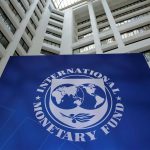The volume of unpaid bank loans has increased in 2023, highlighting a decrease in the financial power of business entities and individuals.
This was revealed by the Governor of the Bank of Ghana (BoG), Dr Ernest Addison, as he presented an update on Monetary Policy Rate (MPR).
“The industry’s Non-Performing Loans (NPL) ratio deteriorated to 18.0 percent in April 2023 from 14.3 percent in April 2022, reflecting higher loan impairments and elevated credit risks,” he said on Monday, May 22.
Dr Addison further revealed that key financial soundness indicators remained strong on the back of the impact of regulatory reliefs.
“The industry’s Capital Adequacy Ratio, adjusted for the regulatory reliefs, was 14.8 percent in April 2023, higher than the revised prudential minimum of 10 percent, but lower than the 21.3 percent recorded in April 2022.
“The decline in the ratio highlights the increase in risk-weighted assets of banks from the impact of exchange rate changes and some losses on mark-to-market investments.
“The industry’s liquidity indicators have also improved following the implementation of the revised Cash Reserve Requirement,” he added.
Meanwhile, the Monetary Policy Committee (MPC) of the BoG has maintained the policy rate at 29.5%.
The committee cited a slowdown in inflation as the primary reason for keeping the rate unchanged, which represents the rate at which the central bank lends to commercial banks.
Dr Addison highlighted the significant decline in headline inflation since the beginning of the year, exceeding 12.0 per cent.
He noted that the percentage of items in the Consumer Price Index (CPI) basket with inflation rates above 50 per cent has been diminishing, indicating a strong return to the disinflation path. Core inflation has also been easing rapidly, further supporting the disinflationary trend.
The Governor emphasized that the tight monetary policy, including additional liquidity management operations to address excess liquidity, relative stability in the local currency, and a decrease in ex-pump petroleum prices, have played crucial roles in the disinflation process.
Additionally, the Bank of Ghana has signed a Memorandum of Understanding on zero financing to the budget, aiming to eliminate fiscal dominance and facilitate a faster easing of inflation towards the target band. Dr Addison expressed confidence that these policies will act as an anchor to reinforce the disinflation process and steer the economy towards recovery.
















